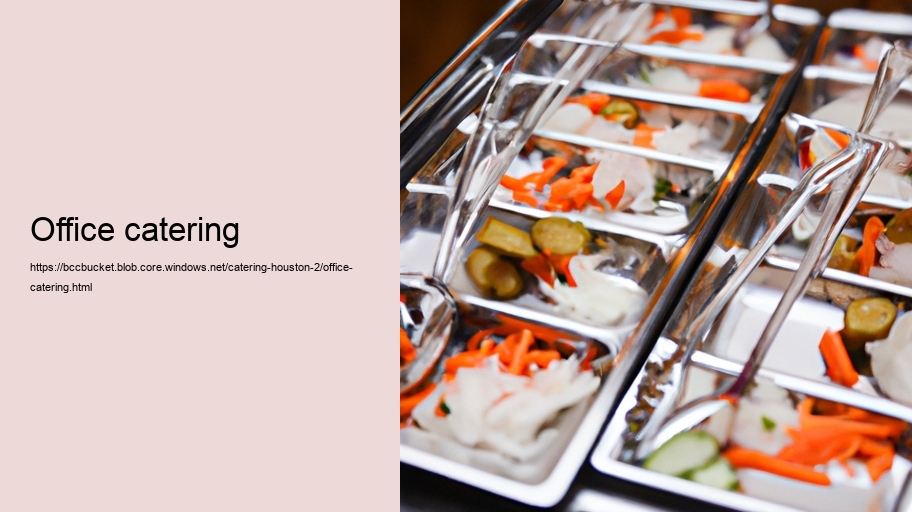To begin with, office catering refers to the provision of food and beverages to employees within a workplace setting by external caterers or in-house food services. It ranges from simple coffee breaks with snacks to elaborate multi-course meals during corporate gatherings. The primary objective is to offer convenient access to quality food without necessitating staff to leave their place of work.
The significance of office catering cannot be overstated when it comes to sustaining employee performance. Nutrition directly influences energy levels and cognitive function; therefore, ready access to healthy meal options can lead to better concentration and efficiency among workers. Moreover, shared dining experiences foster community building and collaboration as colleagues gather around a common table, discussing ideas informally or simply enjoying each other’s company.
There are several benefits associated with office catering that make it an attractive option for companies:
1. Time-saving: Office catering saves employees from spending time venturing out for meals or preparing lunch at home.
2. Increased productivity: With less time spent on meal logistics, employees can focus more on their tasks.
3. Healthier choices: Professional caterers often provide balanced menus that contribute positively to overall wellbeing.
4. Convenience: Food delivery right at one's workspace eliminates any hassle related to meal planning.
5. Team building: Shared meals nurture relationships and team spirit.
Despite these advantages, there are also challenges faced by those managing office catering services:
1. Dietary requirements: Catering for varying dietary needs including allergies, religious restrictions, and personal preferences can be complex.
2. Food safety: Ensuring the proper handling and storage of food is critical in preventing health hazards.
3. Environmental impact: The use of disposable cutlery and packaging raises concerns about sustainability practices.
4. Cost control: Balancing budget constraints while maintaining quality requires careful management.
As businesses evolve so do trends in office catering which aim at addressing these challenges:
1. Customization: Offering personalized menu options caters for individual dietary needs more effectively.
2.language="en" class="c-paragraph">Sustainability efforts: There is a growing move towards eco-friendly practices such as using biodegradable containers or sourcing locally grown produce.
In conclusion,officecateringis much more than just supplying food; it's about enhancing workforce efficacy,building communityand adaptingto modern workplace dynamics.Through thoughtful execution,catering providerscan not only satisfy hunger but also contribute significantly.
